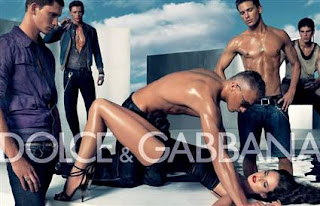Response #19
In Misty Elliot's blog, she talks about Adrian Piper's view on art objects. Piper believes art loses its uniqueness the more it is viewed by us because we appreciate it less and do not feel the surprise we initially did of seeing something new. She also believes we, as human beings, see art as a fetish. We feel the need to categorize, obsess, and label it until it loses meaning. Misty states that she does not agree with Piper because she believes it is possible to enjoy something even more after viewing it enough to understand it and know it deeply. Misty believes the problem is that individuals do not take the time to appreciate art. People take for granted the everyday beautiful of life and don't find the time to admire the works of others. To her, it isn't about fetishism when it comes to art. It's about enjoying and respecting it, which is not done enough in this day and age. Misty asks, "If piper is right and objects lose their uniqueness through perception, does that apply to people as well? If not, then why would objects made by unique people lose their uniqueness when people don't?"
I think Piper makes a strong point about the artworld but I do not think art loses its uniqueness each time it is viewed. The purpose of creating art is to communicate a message to the observer and still have it be aesthetically pleasing. This can't be done if art is not viewed. Of course, the initial surprise of art decreases the more it is seen but I think it becomes even more appreciated and understood each time a person views a piece. For example, when I see a film, its suspenseful and unpredictable since I have never seen it. However, the more and more I see it, the more I enjoy it because I learn something new about it each time. I have seen my favorite movie,
The Princess Bride, more times than I can count. But that makes me love it more and I still find it to be a unique film. I don't think people can lose their uniqueness unless they change who they are and conform to society. I feel as though once a person is characterized as unique, then they become even more so over time. Say a person gets a tattoo, something uncommon. This probably just adds to their unique self. The tattoo will never disappear off a person's body so he or she just can't lose this unique aspect of his or herself. Uniqueness, most of the time, is lasting. Piper's account of art is interesting but I still don't agree that art becomes less unique the more it is viewed. I don't think people do either. Once something is characterized as unique, than it takes a lot to take away this label.
My question to you is:
Do you agree with Adrian Piper's view of performance art, that it is the most unique and appreciated form of art? Why or why not?"Garden" by Joan Miro (I chose this painting because of its uniqueness)







































.jpg)